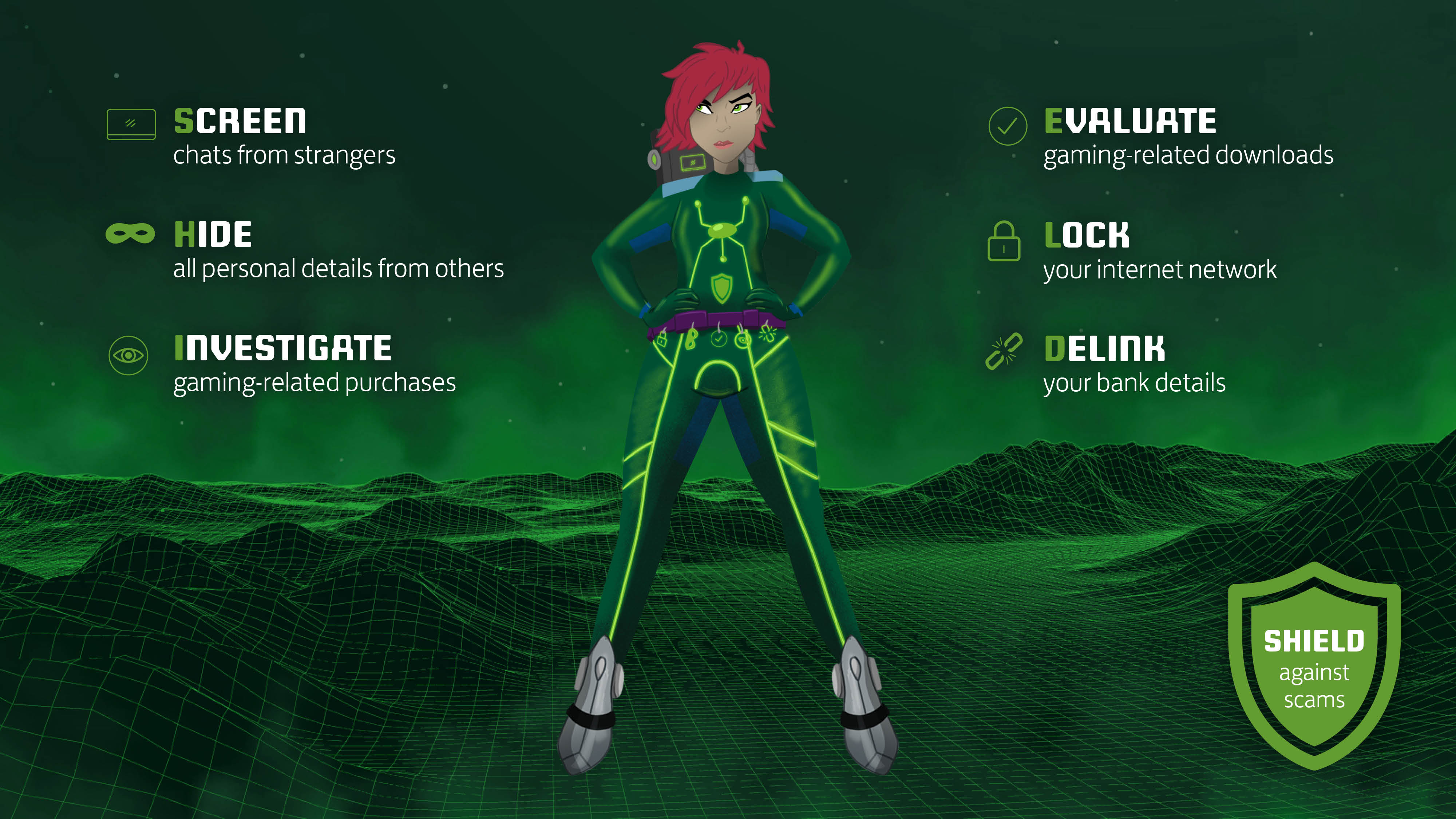Support For Parents Of Video Game Fans From VISA

As we approach the holidays, the number of people planning to spend time playing video games will of course rise. Visa, a world leader in digital payments, has teamed up with Lloyds Bank and gaming body, Ukie, to help players and their parents to recognise the signs of fraud and help them feel confident when playing online.
According to Ukie, December is a key time of year for the games industry, with the majority of big releases and console purchases taking place. With almost half of gamers (46%) planning to spend more time playing over the festive period, the opportunity for fraudsters to take advantage also has a potential to rise.
Visa research shows that:
- Three quarters of players (75%) report being concerned about gaming fraud.
- Almost a third (31%) say they don’t feel confident in knowing how to spot the signs.
- Half (51%) say that they are worried their personal information will get stolen or that their personal account details might be saved in platforms (41%).
- One in three (33%) worry as they feel it’s a lesser-known type of fraud, they’re not sure what they’re looking for (23%) or because they know people who’ve been targeted (20%).
A six-point guide encouraging players to:
- SCREEN any chats from strangers, as well as unexpected gifts and special edition or time-limited offers. Never transfer money to someone you haven’t met in person.
- HIDE personal information from others at all times, concealing your personal details where possible to avoid them being leaked.
- INVESTIGATE any gaming-related purchases before handing over money, such as checking whether the website is blacklisted on https://sitechecker.pro/blacklist-checker/ and only making card payments which offer greater consumer protection.
- EVALUATE whether gaming-related downloads are being made from established trusted sources and whether they are safe by checking for malware via www.virustotal.com
- LOCK your gaming network by using password managers, two-factor authentication within platforms and anti-virus software.
- DELINK your bank details from gaming and online browser accounts. Having two-factor authentication set up on bank transactions and using prepaid cards will also help to keep your money protected.
Mandy Lamb, Managing Director, UK & Ireland at Visa comments: “With more people planning to game over the festive period, it’s important for gamers to understand how to spot the signs of fraud – and what to do to keep their payments safe. We’re coming together with Lloyds Bank and Ukie to shine a spotlight on what to look out for, and the steps to take to game safely online. When it comes to using your Visa card, you can feel confident that if something does go wrong you have protection. Visa’s Zero Liability Policy* means you won’t be held responsible for unauthorised or fraudulent charges made with your account.”
Lloyds have its Game Players SHIELD Code that offers a six-point guide encouraging players to:
- SCREEN any chats from strangers, as well as unexpected gifts and special edition or time-limited offers. Never transfer money to someone you haven’t met in person.
- HIDE personal information from others at all times, concealing your personal details where possible to avoid them being leaked.
- INVESTIGATE any gaming-related purchases before handing over money, such as checking whether the website is blacklisted on https://sitechecker.pro/blacklist-checker/ and only making card payments which offer greater consumer protection.
- EVALUATE whether gaming-related downloads are being made from established trusted sources and whether they are safe by checking for malware via www.virustotal.com
- LOCK your gaming network by using password managers, two-factor authentication within platforms and anti-virus software.
- DELINK your bank details from gaming and online browser accounts. Having two-factor authentication set up on bank transactions and using prepaid cards will also help to keep your money protected.
Liz Ziegler, Fraud Prevention Director, Lloyds Bank comments: “We know that fraudsters are sophisticated and can adapt their methods speedily, so we want people to feel empowered to spot the signs of fraud when they or their children are gaming. Helping gamers – and their parents – know what to look for is an important step in preventing fraud and our SHIELD code educates all gamers, no matter how experienced they may be, ensuring spotting scams is top of mind and allowing people to play safely.”
If you are targeted by a fraudster, to help others avoid falling victim you can report it to Action Fraud or the National Cyber Security Centre. And if you think you have been defrauded, call your bank and explain the situation – they can often help you claim your money back.





